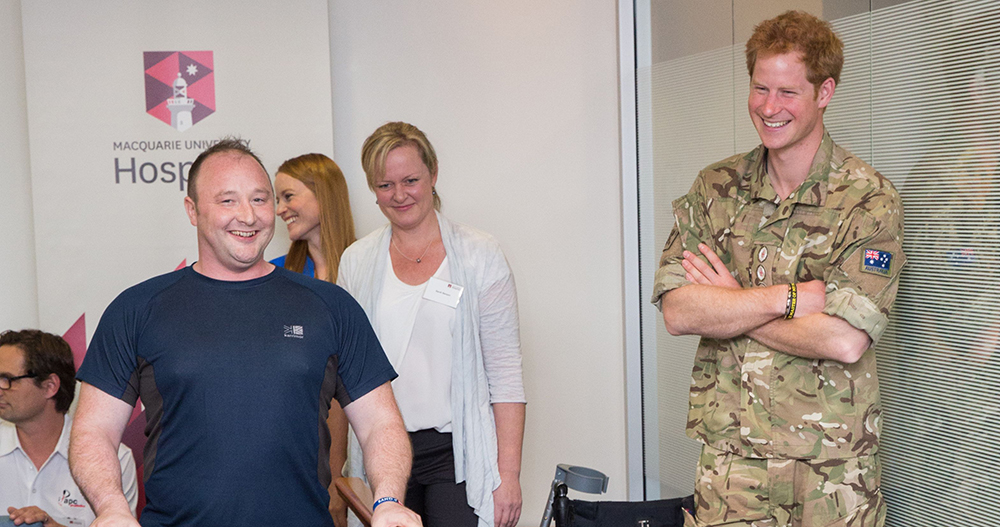On Friday 26 June Macquarie University Hospital (MUH) celebrated 10 years as the country’s only University-led private hospital.
Over the past decade, the hospital has achieved many medical and surgical firsts, pioneering new surgical techniques and healthcare delivery underpinned by cutting edge academic research.
MEDICAL FIRSTS AND KEY AREAS OF SPECIALITY
(1) The Da Vinci Robotic Surgery Program: MUH has the most extensive Robotic Surgery Program in the country.
(2) Osseointegration Surgery: In 2018, MUH surgeons performed a world-first smart limb procedure for a quadruple amputee, using a pioneering procedure that gave the patient two new mind-controlled limbs. Orthopaedic Surgeon MUH Associate Professor Munjed Al Muderis, is the lead surgeon with the program, and discusses the surgery here. This surgery and its life-changing benefits was the reason Prince Harry, Duke of Sussex, visited the Hospital in 2015. A video of his visit is below.
(3) Cutting edge in heart surgery: MUH was the first private hospital in New South Wales to conduct Transcatheter Aortic Valve Implantation, or TAVI, and the first in the southern hemisphere to offer a full TAVI program to support patients undergoing the procedure.
(4) Neurosurgery: The Macquarie University Neurosurgery Unit is one of the largest academic neurosurgery groups in Australia. It includes nine neurosurgeons and a dedicated neurosurgery research laboratory. The unit has subspecialty interests in vascular neurosurgery, spinal surgery, tumour surgery, and radiosurgery.
LINKING ACADEMIA DIRECTLY TO HEALTHCARE
MUH is part of MQ Health – the University’s academic health sciences centre where educational courses are intricately linked with clinical practice. Two of the University’s premier degrees, the Doctor of Physiotherapy and the innovative Macquarie MD use the hospital for clinical teaching.
The Executive Dean of the Faculty of Medicine, Health and Human Sciences, Professor Patrick McNeil is proud of the learning environment at MUH as it provides real-world training and exposure to practitioners, who are often also teaching the various courses – an innovative model for a hospital.
“There’s no other university that runs its own health service on campus,” Patrick explains.
“The Medical School classes are in the building right next to the hospital where the clinics are located. The lecturers are doctors who practice in the clinics or the hospital, or who are doing research in the research labs on the floor above the education spaces.
“We are also preparing our students for the future of remote health (telemedicine) and COVID-19 has accelerated need for this.”
Vice-Chancellor and President, Professor S Bruce Dowton shares his warmest congratulations to those involved in the development of the Macquarie University Hospital, and highlights some key achievements over the past 10 years in a video message below.


 Back to homepage
Back to homepage
Much of the early treatment of heart failure relates to the treatment of the symptoms of heart failure such as diuretics, once acute symptoms are under control, then longer-term strategies are considered. Below is an example of suggested pharmacological management of HFrEF patients. blocked heart valve symptoms
Congratulations on the first 10-years. Keep up the leadership in hospital care, innovation, and medical education.